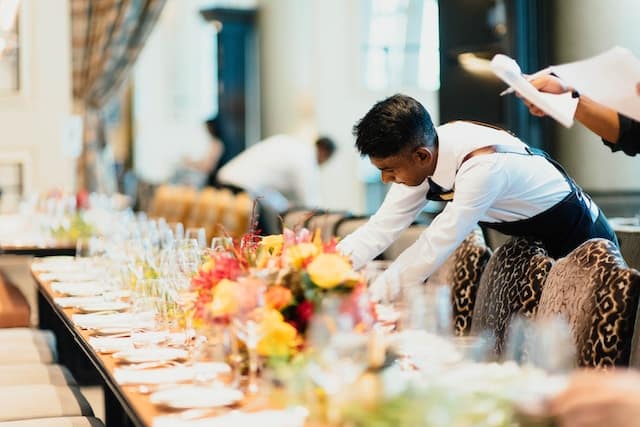The hospitality industry is a diverse and dynamic industry that makes a huge contribution to the world economy. The industry encompasses a wide range of businesses, from hotels and restaurants to resorts and event planning. As worldwide travel continues to grow, the demand for skilled professionals in the hospitality industry also continues to grow.
Pursuing a career in the hospitality industry provides you with a wide range of options, from front-line positions to managerial roles, making it an attractive choice for people who want to work in fast-paced environments. To excel in the field of hospitality, there are certain skills that one must possess that can enhance his career prospects and also contribute to the overall success of his organization.
In this post, we will discuss six essential skills that an individual must possess to succeed in the hospitality industry.
Table of Contents
Excellent Customer Service
In this age, customer service has become necessary for any industry out there, but for the hospitality industry, it is the lifeline. In the hospitality industry, customer service is the foundation upon which everything else is built. Providing excellent customer service is a necessity for the hospitality industry, and in this industry, guests more often remember the way they were treated than anything else.
Providing excellent customer service leads to higher guest satisfaction, loyalty, more positive reviews, and repeat business. Therefore, one of the top skills that you must possess to excel in the hospitality industry is providing excellent customer service.
Good Communication Skills
Communication is vital in the hospitality industry. Having good communication skills is necessary to communicate with both staff members and guests. Miscommunication can lead to misunderstandings, errors, and guest dissatisfaction, all of which can be detrimental to your career.
Clear and efficient communication ensures that operations run smoothly and that you understand the needs and preferences of guests to provide them with the best experience possible. Good communication is one of the most sought-after skills that even brands like Marriott take into consideration before hiring any employee, as the appropriate tone and manner of communication befitting the situation are very important while dealing with customers.
Attention to Detail
In the hospitality industry, small details can make the biggest difference in creating a positive guest experience. When guests visit a hotel or restaurant, they expect to receive a seamless and flawless experience. Sometimes, even the tiniest of oversights can lead to guest dissatisfaction.
As someone who is related to the hospitality industry, you should have keen attention to detail to provide the best guest experience possible. Guests may notice and appreciate the details that demonstrate thoughtfulness and care; therefore, make sure that you go the extra mile and make those small gestures that can leave a lasting positive impression on guests.
Problem-Solving Skills
Challenges and problems are a part of daily life in the hospitality industry. Every day you will encounter some sort of problem, whether it’s a guest complaint, a technical glitch, or a scheduling conflict. To excel and succeed in this field, you need to have strong problem-solving skills to turn a negative guest experience into a positive one.
Having out-of-the-box thinking and exploring alternative ways to solve the problem can help you a lot in the hospitality industry. Brands like IHG, which is a top name in the hospitality industry, conduct regular sessions and workshops for their employees on creative problem-solving techniques to solve problems as quickly and efficiently as possible.
Cultural Awareness and Sensitivity
Since the hospitality industry receives guests from different parts of the world with diverse cultural backgrounds, it is necessary to have cultural awareness and sensitivity to provide inclusive and respectful service in this field. As a professional in this field, make sure that you are well aware of different cultures and understand the cultural preferences of the guests that you receive on a regular basis to make the guests feel valued and respected.
Having a culturally sensitive approach to guests not only enhances the reputation of your organization but also makes you a valuable member of the team.


